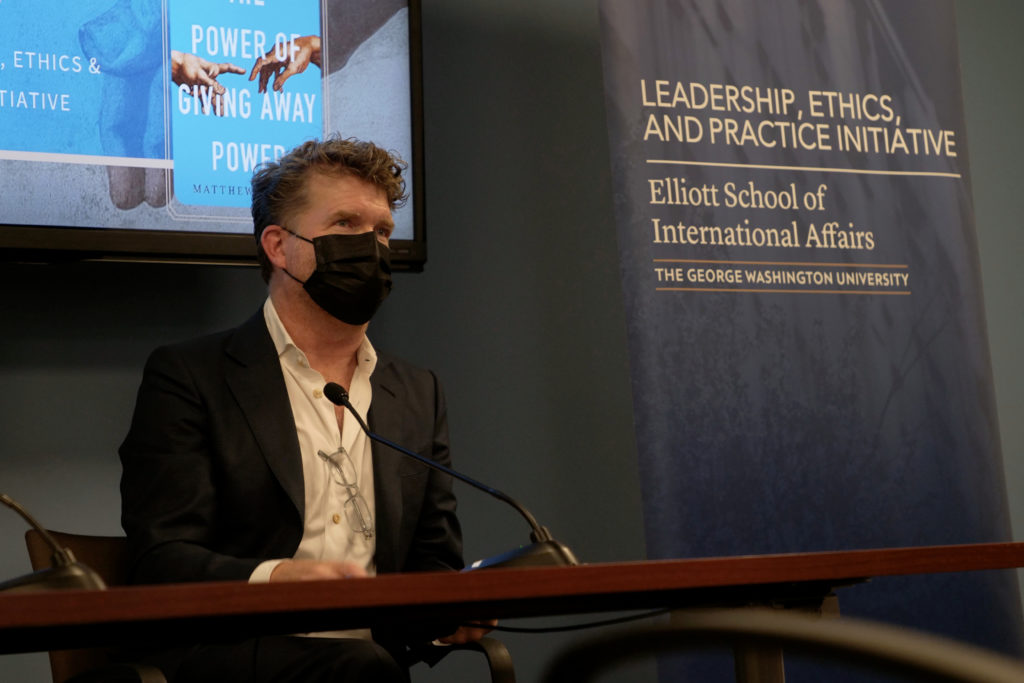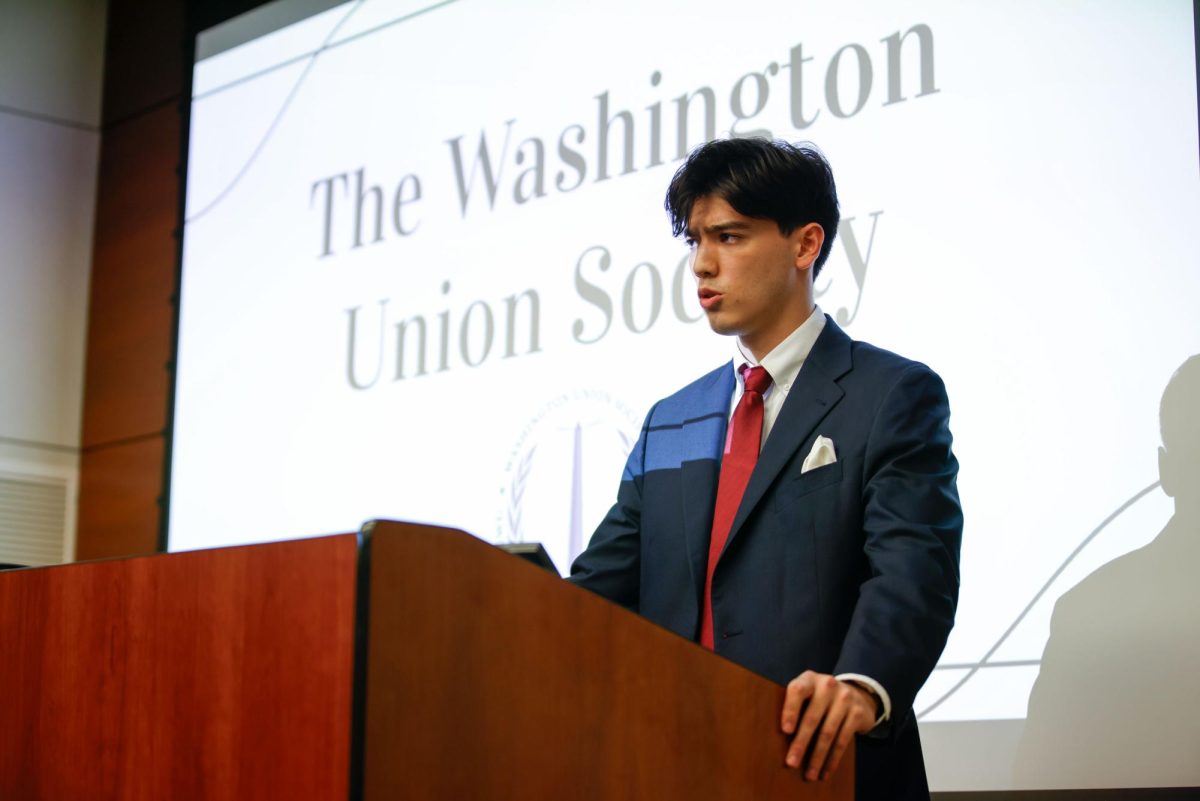A former U.S. ambassador led an in-person talk on how rising professionals and leaders can change their attitudes about power and cooperation at the Elliott School of International Affairs Wednesday.
Matthew Barzun, a former U.S. ambassador to Sweden and the United Kingdom, explained how leaders should promote mutual cooperation to stand out and attain power as part of the discussion that 10 to 15 people attended. The Elliott School’s Leadership, Ethics and Practice Initiative hosted the event as a review of Barzun’s book, “The Power of Giving Away Power: How the Best Leaders Learn to Let Go,” and Emma Beach, a senior in the Elliot School, moderated the discussion.
Barzun said it was strange for him to use “power” twice in the title of his book because he has spent his whole career — which has included work with CNET, political fundraising and diplomacy — trying to avoid the word.
“I just kind of avoided it because I found that it was so loaded,” he said. “It could be amazingly powerful, but it also could have a lot of baggage sometimes.”
Barzun said he focused on power in his book because it’s a struggle that everyone shares. He said he has witnessed and learned about several leaders who enhanced his perspective on power, which they viewed as a product of collaboration instead of a scarce resource.
“You can make as much of it as you want if you bring the right mindset to it,” Barzun said.
He said hierarchical structures often poorly enforce their power because they give demands instead of permitting equal cooperation to create new and innovative ideas. He urged students entering their careers to acknowledge their space within hierarchical structures so they can challenge these establishments.
Barzun said instead of looking to win or lose, people should try to bring a spirit of cooperation to every situation – the key to successful collaboration.
“The only reason we should gather is to co-create, to actually make something together,” he said.
Barzun said while it can be helpful for people to understand where they fit into an organization, staying in one mindset for too long and focusing on a specific hierarchy can prevent someone from tapping into any potential skills.
“If you stare at the road and only at the road ahead, that’ll kill you,” he said. “It’s called tunnel vision. Just look around. Being wide awake and paying attention is the best antidote.”








